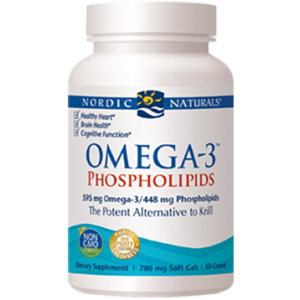Chronic depression is a menace to society, afflicting an estimated 15.7 million, or 6.7 percent, of the U.S. adult population. Millions of these people are prescribed SSRIs, which medicate the symptoms, rather than treating the underlying problem. According to a recent meta-analysis, however, omega-3 fatty acids can help reduce the symptoms of depression without the risks associated with dangerous pharmaceuticals.
Omega-3 is an essential fatty acid, meaning it cannot be synthesized by the body, but must come from food. Approximately 8 percent of the brain’s weight consists of omega-3 fatty acids. They build cell membranes and can even increase the volume of brain matter.
Researchers led by Roel J. T. Mocking of the Program of Mood Disorders, Department of Psychiatry at the University of Amsterdam, reviewed 13 previously published studies that encompassed a total of 1,233 participants. The meta-analysis, published in the journal Translational Psychiatry, was conducted to investigate the health benefits attached to omega-3 polyunsaturated fatty acid (PUFA) supplements for people diagnosed with major depressive disorder (MDD).
Omega 3s kick depression to the curb
The team found that people taking EPA and DHA omega-3 fatty acids, which are found in fish, experienced a reduction in their depressive symptoms.
“This new meta-analysis nuances earlier research on the importance of long chain omega-3s in MDD,” Mocking said in a press release. “Omega-3 supplements may be specifically effective in the form of EPA in depressed patients using antidepressants. This could be a next step to personalizing the treatment for depression and other disorders,” he added.
The team noted that additional research is needed to investigate the link between EPA and DHA omega-3 PUFA supplementation and depressive symptoms. These trials must include the use of antidepressants, report the researchers.
“Future precision/personalized medicine trials should establish whether possible interactions between EPA and antidepressants could
provide targets to improve antidepressant response and its prediction,” the team concluded. “Nevertheless, potential long-term biochemical side effects of high-dosed add-on EPA supplementation should be carefully monitored.”
The results of the study follow in the footsteps of another recent study published in the Journal of Clinical Psychiatry, which examined the link between omega-3 PUFA supplementation and depression. The authors of the study found that participants with high levels of omega-3 in their blood benefited positively from taking omega-3 PUFA supplements.
“We found that people with higher levels of omega-3 in their blood may benefit more from additional omega-3, in the form of supplements, than those whose blood levels of the fatty acids were lower at the outset,” psychiatry professor and lead investigator Robert M. Carney, told sources. “Because depression is linked to heart attacks and sudden cardiac death in patients with cardiovascular disease, we have been trying to figure out how best to improve depression in these patients. These findings offer potential answers for a very significant problem.”
The problem with antidepressants
Depression is a major problem, but antidepressants are just as much of a problem in and of themselves. Although SSRIs are a sure way to cut off the root of emotions, they’re not without their share of risks. Does it not disturb anyone else that most mass shooters – devoid of a moral conscience – were either actively taking powerful psychotropic drugs, or had taken powerful psychotropic drugs before committing such heinous acts? This doesn’t mean that anyone on antidepressants is a psychopath. Correlation does not equal causation. But the stakes are too high for the link to go unnoticed.
Furthermore, like most drugs issued by Big Pharma, antidepressants are massively over-prescribed. In many cases, depression is brought about by poor nutritional habits, which can be mitigated by a change in lifestyle. Given the pivotal role omega-3s play in the brain, they could fulfill tasks typically reserved for SSRIs.
The recent meta-analysis highlights the importance EPA and DHA omega-3s have on our overall heath, and adds credence to previous research examining the link between omega-3s and reduced depressive symptoms.
Sources include:
EurekAlert.org
HNGN.com
PsychologyToday.com
Health.Harvard.edu
LifeExtension.com
NaturalNews.com
Science.NaturalNews.com
By S. Johnson
Source: naturalnews.com; April 10, 2016; https://www.naturalnews.com/053607_SSRIs_antidepressants_Omega-3s.html
